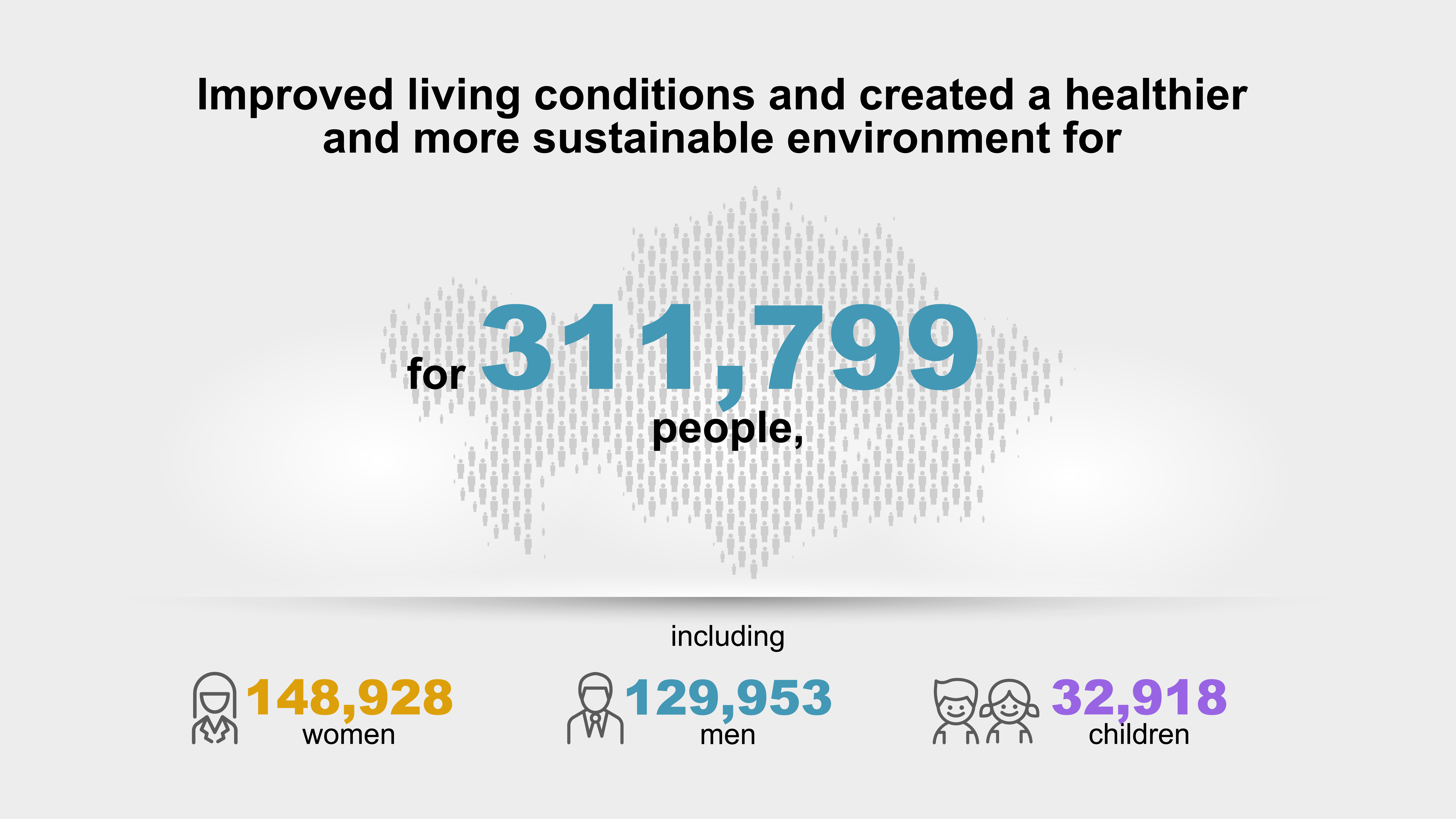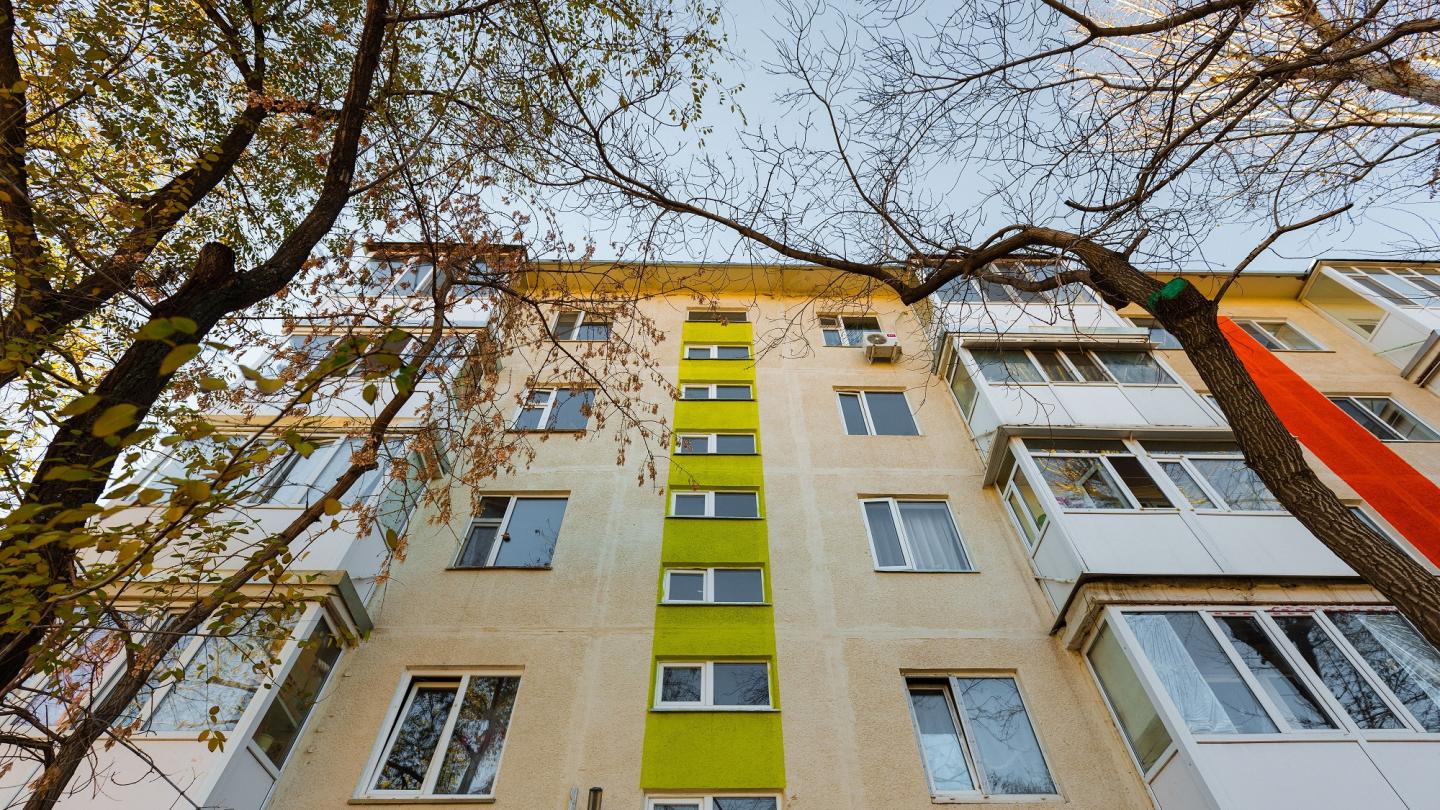How to create a comfortable environment for people and reduce greenhouse gases
On the road to carbon neutrality
May 14, 2024

Achieving carbon neutrality, or zero emissions, is an international objective that countries globally are actively pursuing. As the urgency to combat climate change mounts, concerted actions are becoming increasingly critical. During the 28th session of the UN Climate Change Conference, nations concurred on reducing reliance on fossil fuels like coal, oil, and gas. A significant resolution from the conference was the proposal to triple the global renewable energy capacity and double the average annual rate of energy efficiency improvements by 2030, including steps to phase out coal use and boost renewable energy uptake.
United Nations Development Programme (UNDP) supports national initiatives aimed at achieving carbon neutrality. In collaboration with various governments, UNDP has championed energy efficiency initiatives that have established legal frameworks, set the necessary standards and regulations, improved energy efficiency in various sectors of the economy, and stimulated private investment in energy-efficient technologies.
The initiative includes providing technical support for implementing technically and economically feasible low-carbon solutions in key urban sectors in Bosnia and Herzegovina through dedicated financial mechanisms. In Moldova, the focus is on catalyzing investments in low-carbon green urban development based on an integrated urban planning approach, fostering innovation, participatory planning, and partnerships between the public and private sectors. In Uzbekistan, the initiative supports awareness-raising on energy efficiency issues and the application of renewable energy technologies in households and buildings, as well as financial support for rural household owners and specialized training for architects, designers, and civil engineers. In Ukraine, it accelerated the implementation of energy efficiency measures in public buildings by energy-saving companies, boosting private sector investment, and introducing energy management information systems in the country. And currently, Ukraine is developing a green investment support mechanism.
Kazakhstan aims to achieve carbon neutrality by 2060 and acknowledges the importance of transitioning from fossil fuels to alternative fuels and energy sources. The country has significant coal reserves and traditionally relied on fossil fuels which led to high greenhouse gas emissions. The government of Kazakhstan recognizes the need to transition to a greener future and ratified the Paris Agreement in 2016. UNDP is actively supporting the government in fulfilling its commitments under the Agreement.
The country faces several challenges in reducing greenhouse gas emissions, enhancing energy efficiency, and developing its energy sector. These include outdated thermal power plants, the lack of financial tools to subsidize green projects for small and medium-sized enterprises, a lack of collateral, and high interest rates on loans.
Throughout the nine-year initiative, UNDP experts developed financial mechanisms and implemented demonstration projects that utilized energy-efficient technologies across various sectors, including housing and utilities.
This initiative has improved the green financing market and attracted private investment through the Damu Entrepreneurship Development Fund JSC. As a result of this collaboration with UNDP, 50 projects totalling 3,9 billion tenge have been supported. To date, the Fund has supported nearly 130 "green" projects, with a combined value exceeding 190 billion tenge.
The housing sector in Kazakhstan is one of the largest consumers of heat and electricity which has a significant impact on the level of greenhouse gas emissions
Financial mechanisms
Financial mechanisms, which are accessible to all sectors and industries, are supported by donor funds. These mechanisms usually combine commercial and concessional financing. The commercial component increases the total financing available, while the concessional component increases the attractiveness of investments.
Small and medium-sized enterprises play a central role in the energy services model and are usually represented by Energy Service Companies (ESCO). An ESCO invests in energy efficiency projects and recoups its investment through the savings these projects generate, thus continuing the cycle. Consumers, in turn, continue to pay their usual tariffs, with the savings covering the cost of the appliances. Once the investment has been amortised, the savings go to the consumers.
This financial model facilitates cooperation between companies, homeowners, and local authorities in the modernisation of residential buildings. For example, the ESCO could take care of insulating the walls, repairing internal systems and networks and installing an automatic heating unit, while apartment owners could take care of repairing and insulating the roof and renovating the entrances, and the local authorities (Akimat) could take care of landscaping, replacing heating and drainage systems, improving rainwater drainage and tree planting projects. The residents' contributions are offset by energy savings under the energy service contract model.
Thus, these financial mechanisms not only reduce the financial burden on investors but also encourage additional investment in energy efficiency, resulting in long-term savings and increased property values.

The project contributed to improving the quality of life and created a healthier and more sustainable environment for the local communities
Demonstration projects
In Kazakhstan, heating and electricity in residential buildings contribute to over half of the greenhouse gas emissions. The housing and communal sector, one of the most energy-intensive sectors, accounts for about 17 percent of the electrical and over 47 percent of the thermal energy consumption.
As of 2022, 82 percent of urban and almost 7 percent of rural residential buildings were connected to district heating, primarily powered by fossil fuels or small boiler houses. In rural areas, coal is predominantly used for heating.
It is estimated that about 60,000 of over 300,000 residential buildings have outdated heating systems requiring energy-efficient modernization. According to UNDP, the investment required to improve energy efficiency in the multi-apartment residential sector amounts to around US$15 billion.
In various regions of Kazakhstan, 50 small and medium-sized enterprises have benefitted from pilot energy efficiency projects, which have collectively reduced and avoided approximately 1,1 million tonnes of CO2 emissions throughout the projects' lifecycle. These projects have not only improved living conditions but have also fostered a healthier and more sustainable environment for 311,799 people, including 148,928 women, 129,953 men, and 32,918 children.

Energy-efficient technologies
Examples of energy efficient technologies
Installation of a biomass boiler house and modernization of the entire heat supply system at Beskol school-college in North Kazakhstan region saved more than 12 million tenge per year in heating costs and reduced greenhouse gas emissions by 1,233 tonnes of CO2 per year (30,825 tonnes of CO2 over the life cycle of the project).
A biomass boiler house at Beskol school-college in North Kazakhstan region
In the village of Zerenda, Akmola region the modernization of heating systems and the connection of solar collectors have reduced fuel and electricity costs by more than 2,400,000 tenge per year and reduced greenhouse gas emissions by more than 290 tonnes of CO2 per year.
Children Health Center “Parus”, Zerenda v. Akmola region, Kazakhstan
Pilot projects in Temirtau and Astana have demonstrated the effectiveness of energy-efficient technologies in residential buildings. In Astana, the implementation of energy efficiency measures in the pilot buildings led to a significant reduction in annual heat consumption of 31,3 percent and a 71 percent reduction in electricity consumption for general household purposes. These measures led to a reduction in greenhouse gas emissions of 604 tonnes of CO2 per year and annual savings of around 2,9 million tenge on electricity bills. Over the life cycle of the appliances installed and the measures taken in the pilot neighbourhood, it is estimated that the reduction in greenhouse gas emissions will amount to approximately 12,4 thousand tonnes of CO2 per year. In Temirtau, the pilot project has led to a reduction in greenhouse gas emissions of 197 tonnes of CO2 per year.
Energy-efficient modernization in pilot multi-apartment residential buildings in Astana, Kazakhstan
Recommendations
Global climate change and economic and political challenges make it necessary for Kazakhstan to accelerate the decarbonization of its economy. The country's strategy indicates a significant need for investment in low-carbon technologies to achieve carbon neutrality targets, with an estimated investment requirement of $610 billion. Of this, 96 percent is expected to come from the private sector, while public investment will account for around four percent.
Based on the results of the nine-year project, UNDP experts have proposed several recommendations to improve financing opportunities for modernization projects in the heating and hot water sector:
Increased Financing for ESCOs and Service Providers: This includes conducting community studies to understand energy needs, amending legislation to allow ESCOs to participate in public projects, creating equity financing opportunities through bonds, and introducing new financing mechanisms.
Development of the ESCO Market: it is proposed to subsidize existing ESCOs, strengthen the role of the Kazakhstan Centre for Modernization and Development of Housing and Public Utilities, support cooperation between ESCOs, and increase awareness of energy efficiency.
Monitoring and Evaluation: The recommendations propose setting aside 2 to 4 years to develop a system for assessing and monitoring greenhouse gas emissions, including the certification of auditors and the creation of a market for emission reduction certificates.
Technical Assistance: support is offered to facilitate the introduction of balancing heating systems in apartment buildings and to increase efficiency.

 Locations
Locations





















